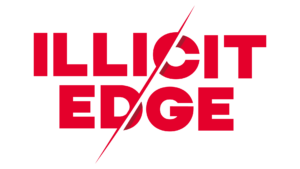Corruption and Kleptocracy: Yes, they are national security interests.
Irene Kenyon – February 6, 2023
When I first began working in the intelligence community, my focus was mostly defense capabilities and budgets. I understood why corruption was a major concern that impacted military capabilities, and when I briefed new ambassadors and military attaches, I made sure to flag corruption, when appropriate, in their new duty stations as an issue that would impact military capabilities of various allies and partners..
After all, when a certain percentage of your defense budget disappears into a black hole of kickbacks and bribes, building a respected, well-equipped, well-trained, modernized military becomes an insurmountable challenge.
And through that lens, corruption becomes a national security issue.
—
This brings me to Russia.
In 2011, Russia’s chief prosecutor publicly stated that one-fifth of the country’s defense budget was stolen, holding Russia back from effectively equipping and training its military. I judge that more than that disappeared into the pockets of corrupt officials and military officers, but 20 percent is not a small number by any stretch.
In 2010, Transparency International rated Russia 154th out of 178 nations in its corruption perceptions index (CPI), along with Cambodia, Kenya and Laos—Russia’s lowest ranking since the index began in 1995. The organization released its annual index this week, and Russia dropped to 137 out of 180 from 136 the previous year.
Frankly, I’m surprised it wasn’t more.
But why is corruption in Russia a threat not just to its neighbors, but to the rest of the world?
Corruption enables violence.
Corruption enables authoritarianism.
When corruption is unlimited, the kleptocratic system emerges, stealing resources, stifling dissent, and feeding on its neighbors when domestic resources are exhausted.
Kleptocrats with links to the Kremlin help government elites hide misappropriated assets, leaving the populace writ large with limited resources, while enriching corrupt government officials. Public discontent ensues, and the government has throttle it to ensure that the government elites continue to wield their authority and siphon the country’s resources.
—
A clear connection exists between violence and corruption. Corruption enables authoritarianism and aggression, not just against the citizens of the countries judged to be most corrupt, but also against neighboring nations. Protests are stifled via government force, free speech is suppressed, and those who speak out are arrested, or worse. Those who publicly oppose government policies lose their livelihoods and sometimes their lives.
Because media and opposition voices are strangled, corrupt government officials feel empowered to continue their violence and aggression. Messaging is one-sided, and the people are fed a steady diet of lies and propaganda. Public discontent rises, since the government shuns its mission to protect people from violence, and more and more opposing views are stifled, but a good portion of the people swallow the lies because government propaganda is the only source of information they have.
Notice that Russia has made criticizing its military after Putin began the invasion of Ukraine a criminal offense, and a number of independent media outlets were forced to suspend operations.
The lack of balanced, objective reporting in Russia only emboldened Putin to continue murdering and torturing Ukrainians, while destroying civilian infrastructure and leaving the Ukrainian people without power and other necessities. The Russian media outlets only published and broadcast complimentary reports on Putin’s “special operation,” promoting lies about Ukraine being a fascist state, claiming that Ukraine was ready to use biological weapons against Russia, and deriding any negative reporting as vicious lies against poor Russia that was just trying to defend its sovereignty against Ukrainian “Nazis.”
As the lack of independent voices strengthened Putin’s resolve to destroy Ukraine, his corrupt oligarchs swung into action, helping him obscure his assets and protect them from the resulting western sanctions, while spamming western courts with suits, demanding that sanctions be removed.
—
The Biden administration in 2021 rightly identified corruption and kleptocracy as core national security interests. Not only did corruption enable the increased authoritarianism and aggression that led Russia to invade Ukraine last year, but Russia has been bribing corrupt politicians all over the globe for years, using money and prestige as a soft power lever to attain its foreign policy goals.
-
Leaked emails this week revealed that the International Agency for Current Policy, a secretive, Kremlin-linked organization, successfully bribed several EU politicians who helped push Russia’s agenda and pro-Russian policies in exchange for money. Parliamentary staffer Sargis Mirzakhanian, gave cash to EU politicians to propose pro-Russia motions in their local legislatures and paid activists to write pro-Kremlin articles in European media outlets.
-
Ties between Russian oligarchs and UK elites are well known. They give money to political parties, invest in media and industry, and lobby political parties on their—and sometimes on Russia’s—behalf.
-
To advance Russia’s energy policy in Europe, the Kremlin gave former German Chancellor Gerhard Schröder “a highly-paid board position” on Gazprom’s Nord Stream project, making the EU increasingly dependent on Russian gas and resulting in massive risk to Europe’s energy security.
-
Let’s also not forget that Russia gave former Austrian Foreign Minister Karin Kneissl a position with state-owned oil company, Rosneft, and former French Prime Minister Francois Fillon a position with energy company Zarubezhneft. Fillon resigned from his positions last year in response to Russia’s invasion of Ukraine, but the bottom line here is clear: Russia is coopting elites in those countries to further Russia’s geopolitical goals.
Russia has been pouring cash into the pockets of foreign politicians and government-linked elites for decades, and although this is not news, a picture of just how much corruption degrades and undermines democratic institutions while promoting the geopolitical goals of aggressive, authoritarian regimes is clear.
—
